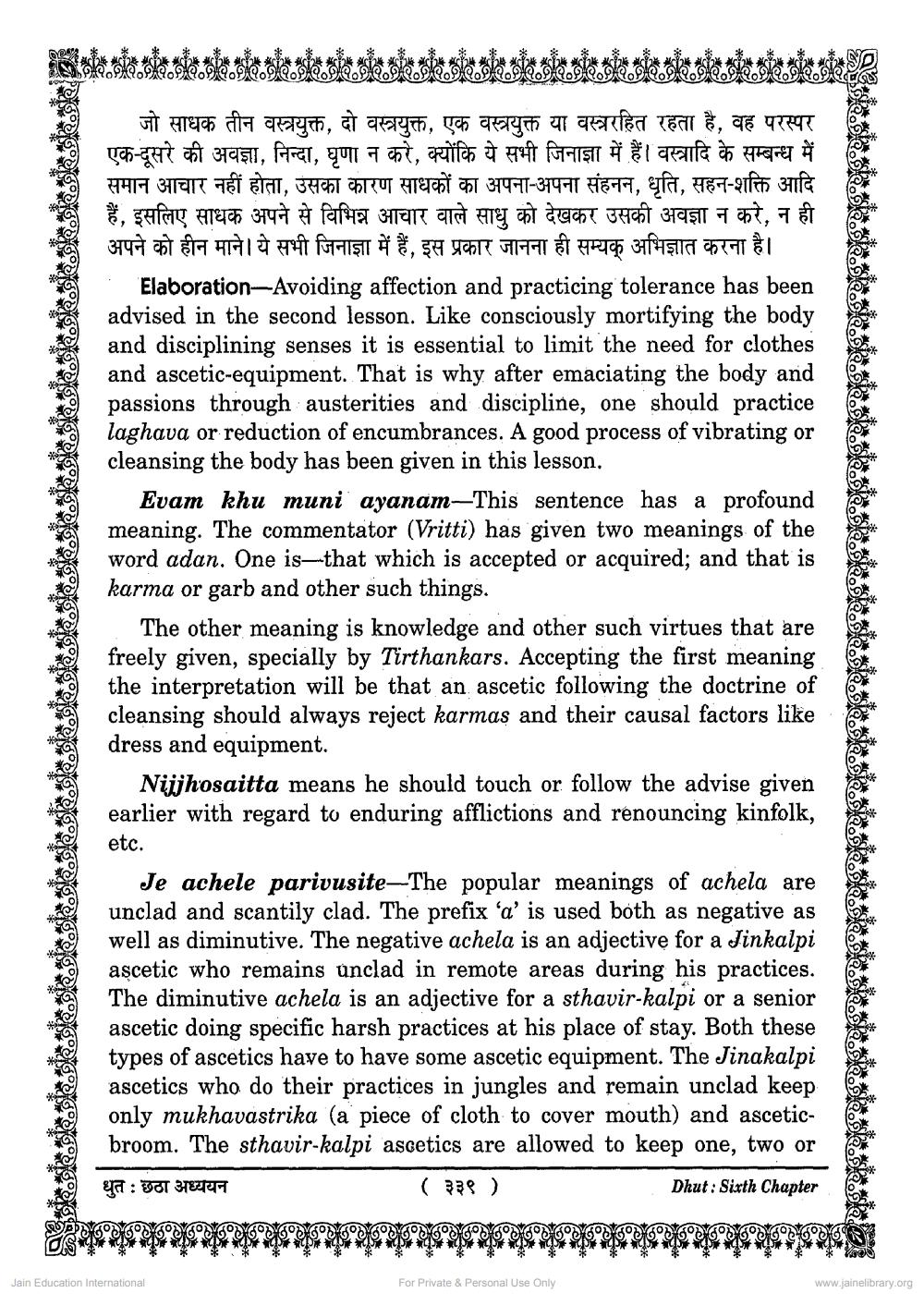________________
जो साधक तीन वस्त्रयुक्त, दो वस्त्रयुक्त, एक वस्त्रयुक्त या वस्त्ररहित रहता है, वह परस्पर एक-दूसरे की अवज्ञा, निन्दा, घृणा न करे, क्योंकि ये सभी जिनाज्ञा में हैं। वस्त्रादि के सम्बन्ध में समान आचार नहीं होता, उसका कारण साधकों का अपना-अपना संहनन, धृति, सहन-शक्ति हैं, इसलिए साधक अपने से विभिन्न आचार वाले साधु को देखकर उसकी अवज्ञा न करे, नही अपने को हीन माने। ये सभी जिनाज्ञा में हैं, इस प्रकार जानना ही सम्यक् अभिज्ञात करना है ।
Elaboration-Avoiding affection and practicing tolerance has been advised in the second lesson. Like consciously mortifying the body and disciplining senses it is essential to limit the need for clothes and ascetic-equipment. That is why after emaciating the body and passions through austerities and discipline, one should practice laghava or reduction of encumbrances. A good process of vibrating or cleansing the body has been given in this lesson.
Evam khu muni ayanam-This sentence has a profound meaning. The commentator (Vritti) has given two meanings of the word adan. One is that which is accepted or acquired; and that is karma or garb and other such things.
The other meaning is knowledge and other such virtues that are freely given, specially by Tirthankars. Accepting the first meaning the interpretation will be that an ascetic following the doctrine of cleansing should always reject karmas and their causal factors like dress and equipment.
Nijjhosaitta means he should touch or follow the advise given earlier with regard to enduring afflictions and renouncing kinfolk, etc.
Je achele parivusite-The popular meanings of achela are unclad and scantily clad. The prefix 'a' is used both as negative as well as diminutive. The negative achela is an adjective for a Jinkalpi ascetic who remains unclad in remote areas during his practices. The diminutive achela is an adjective for a sthavir-kalpi or a senior ascetic doing specific harsh practices at his place of stay. Both these types of ascetics have to have some ascetic equipment. The Jinakalpi ascetics who do their practices in jungles and remain unclad keep only mukhavastrika (a piece of cloth to cover mouth) and asceticbroom. The sthavir-kalpi ascetics are allowed to keep one, two or धुत: छठा अध्ययन
( ३३९ )
Dhut: Sixth Chapter
Jain Education International
For Private Personal Use Only
www.jainelibrary.org




